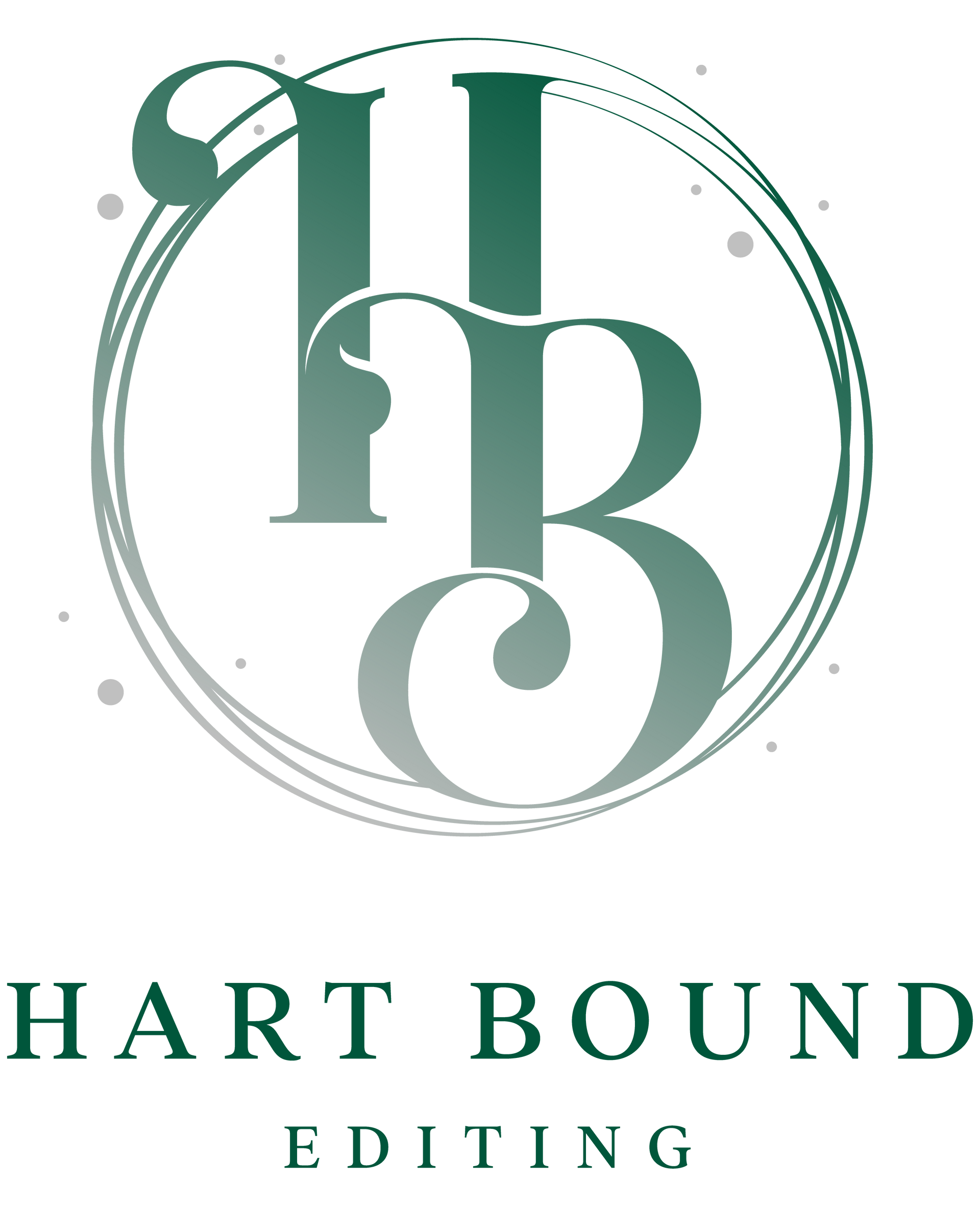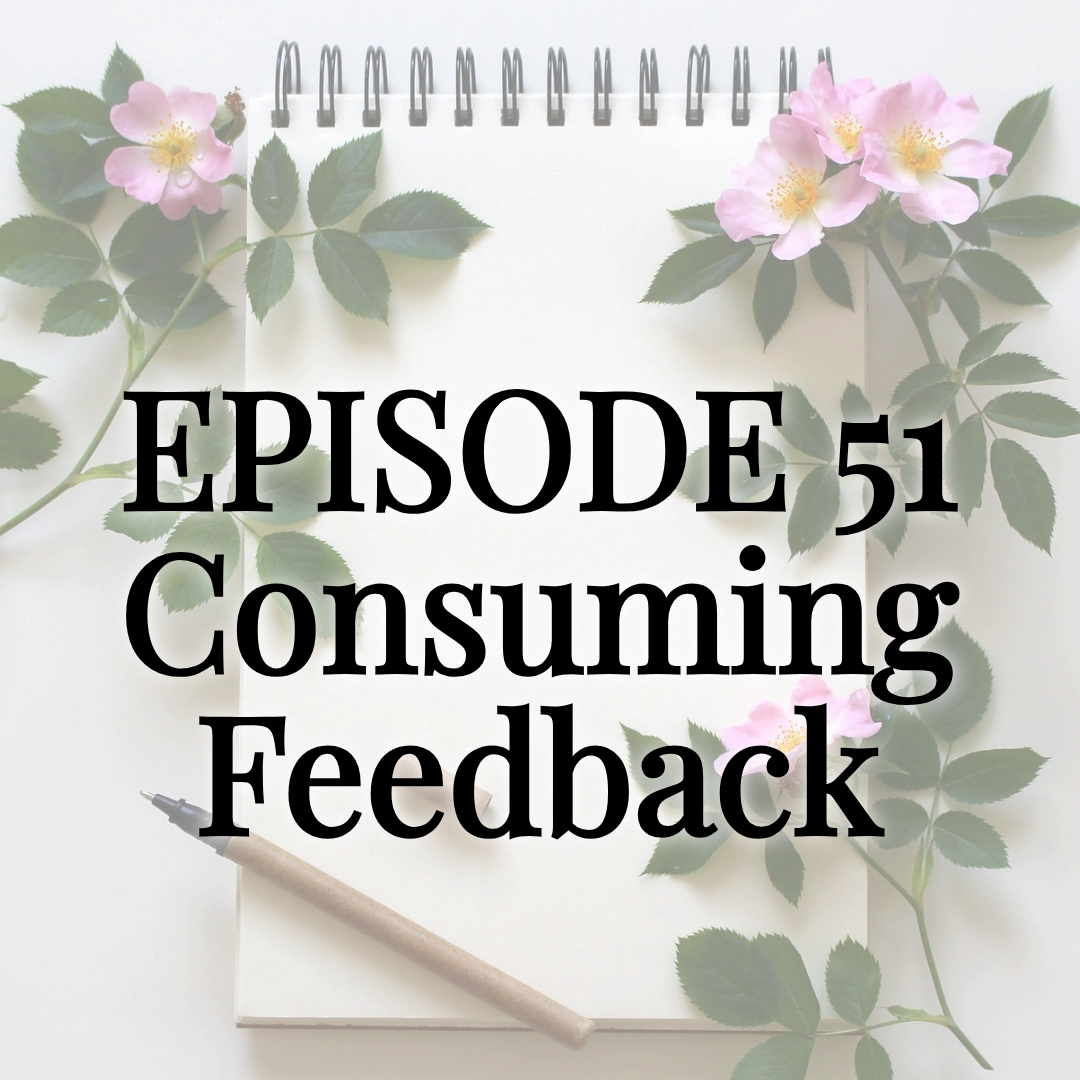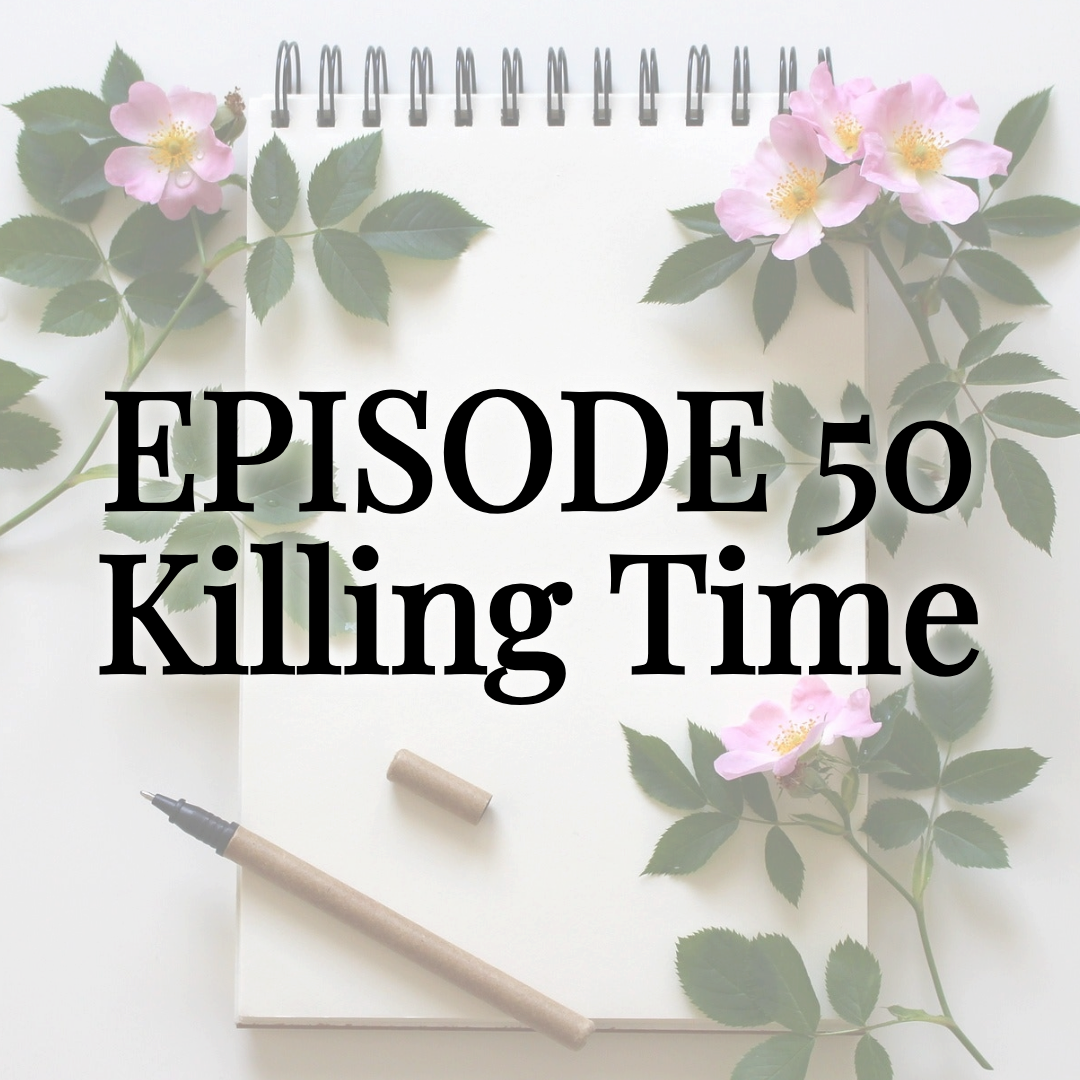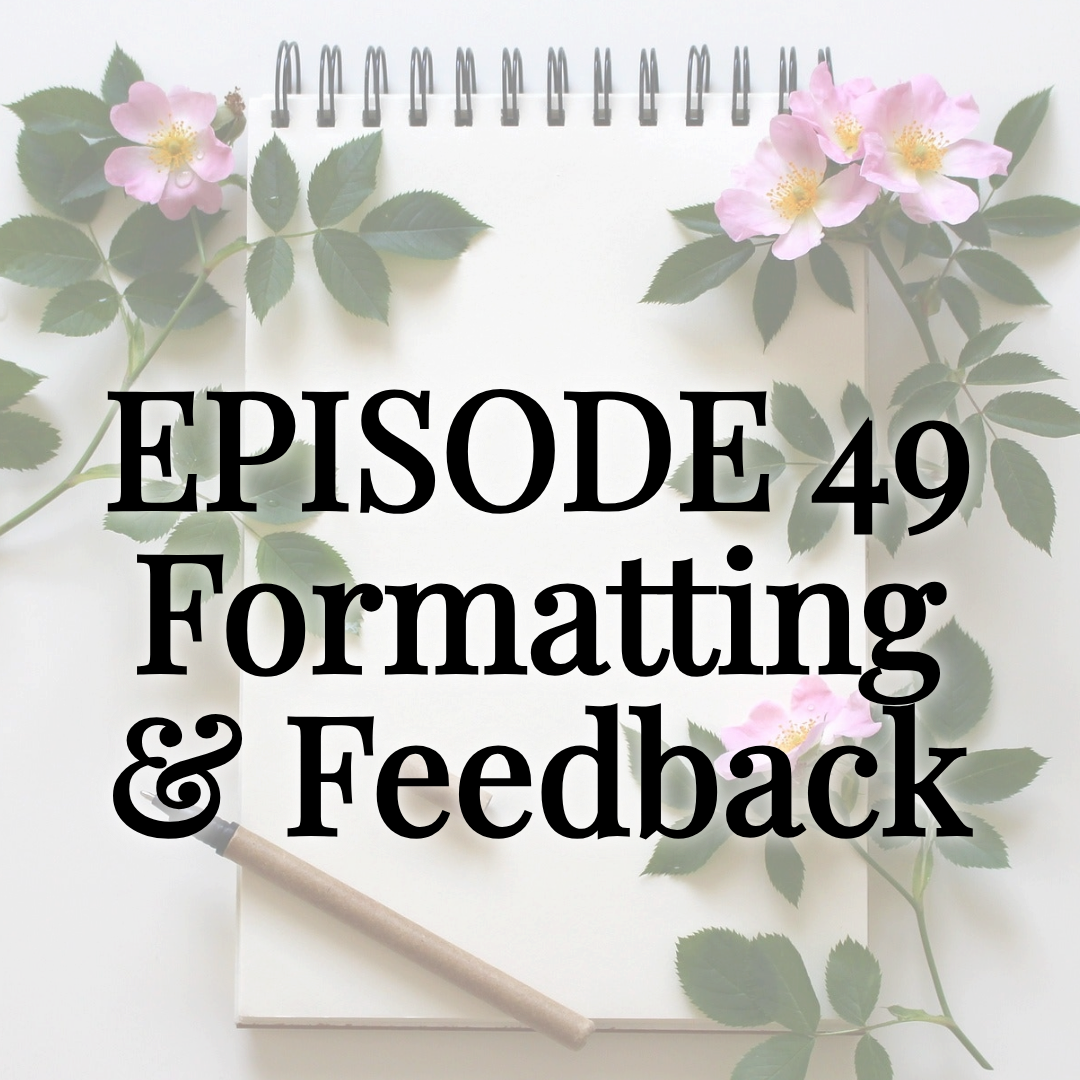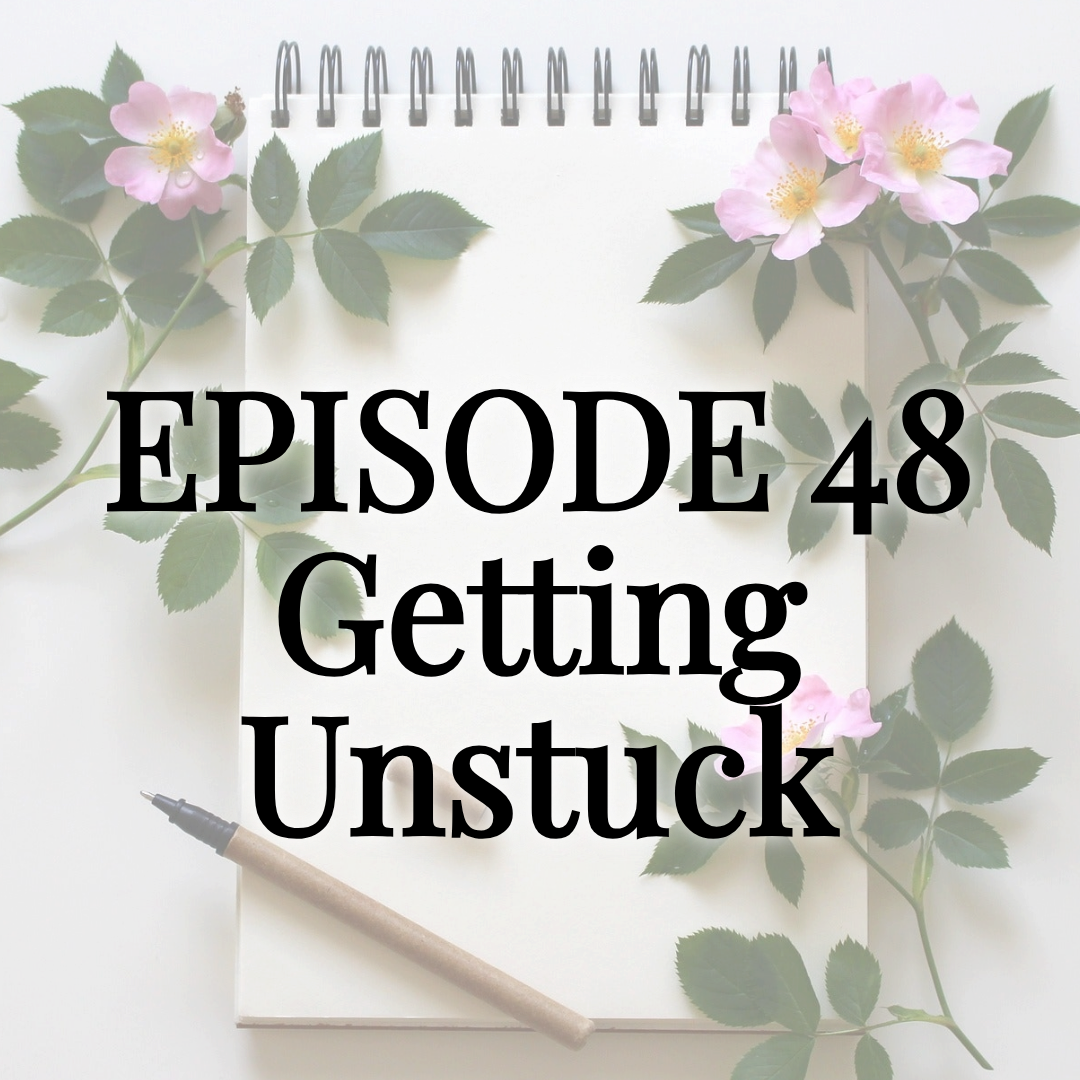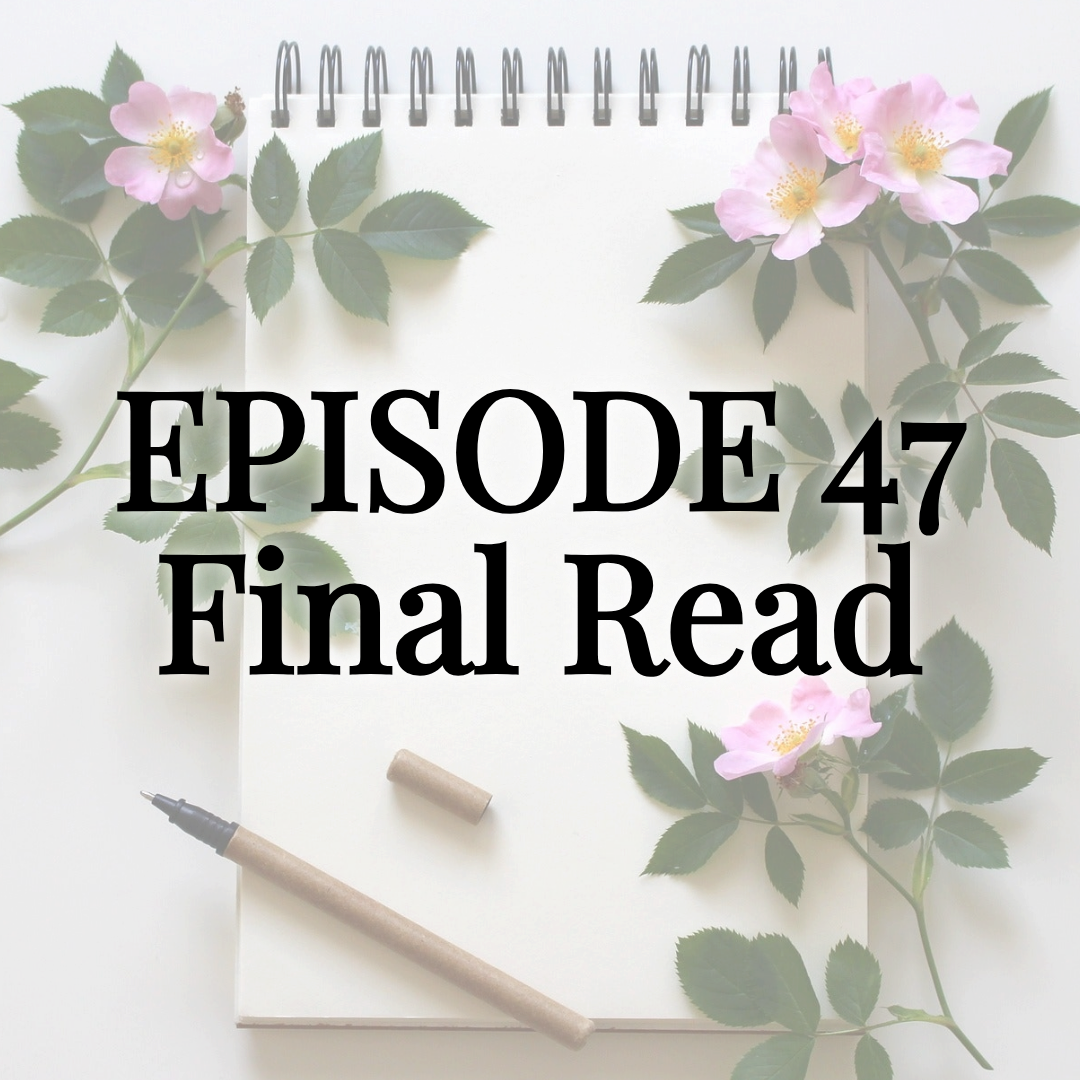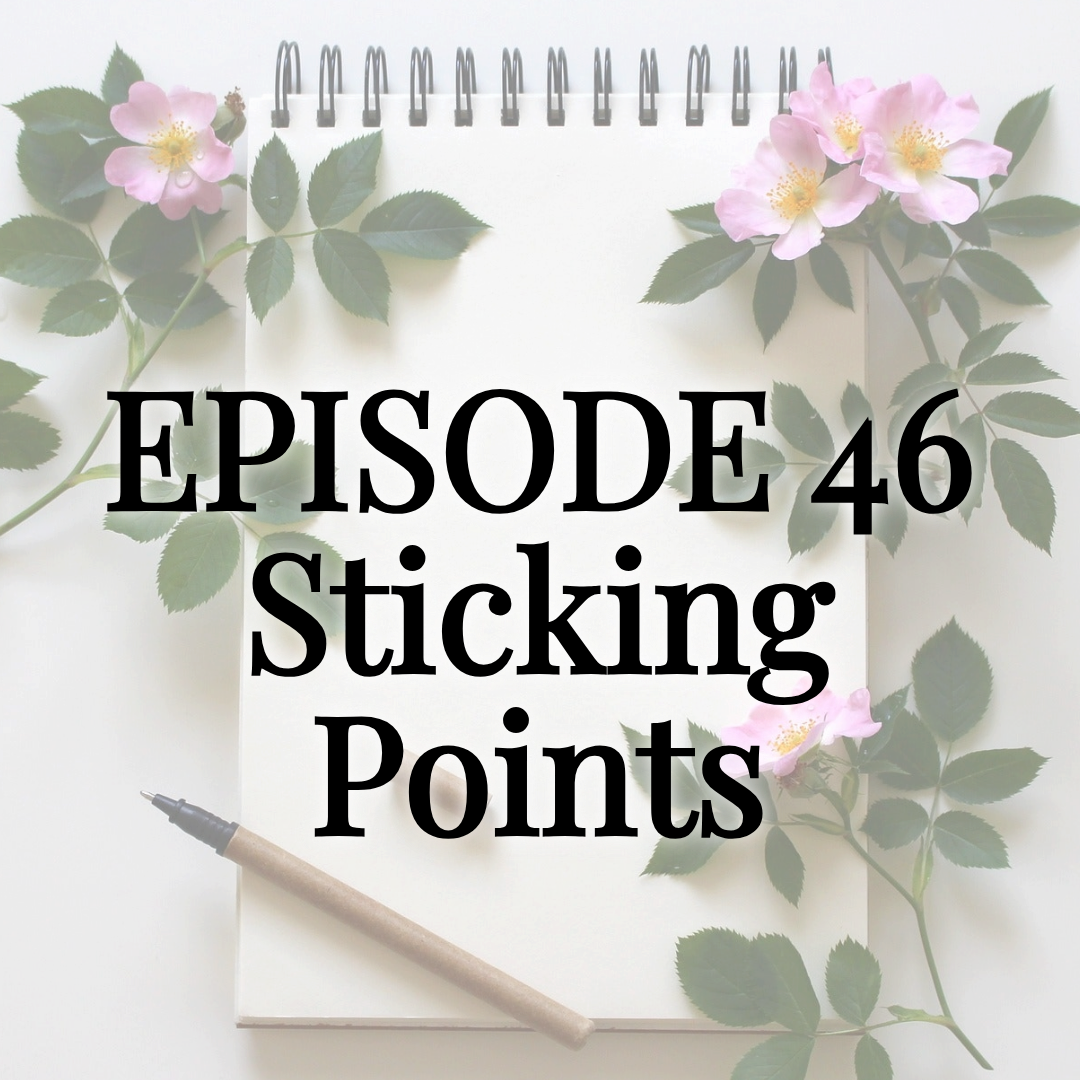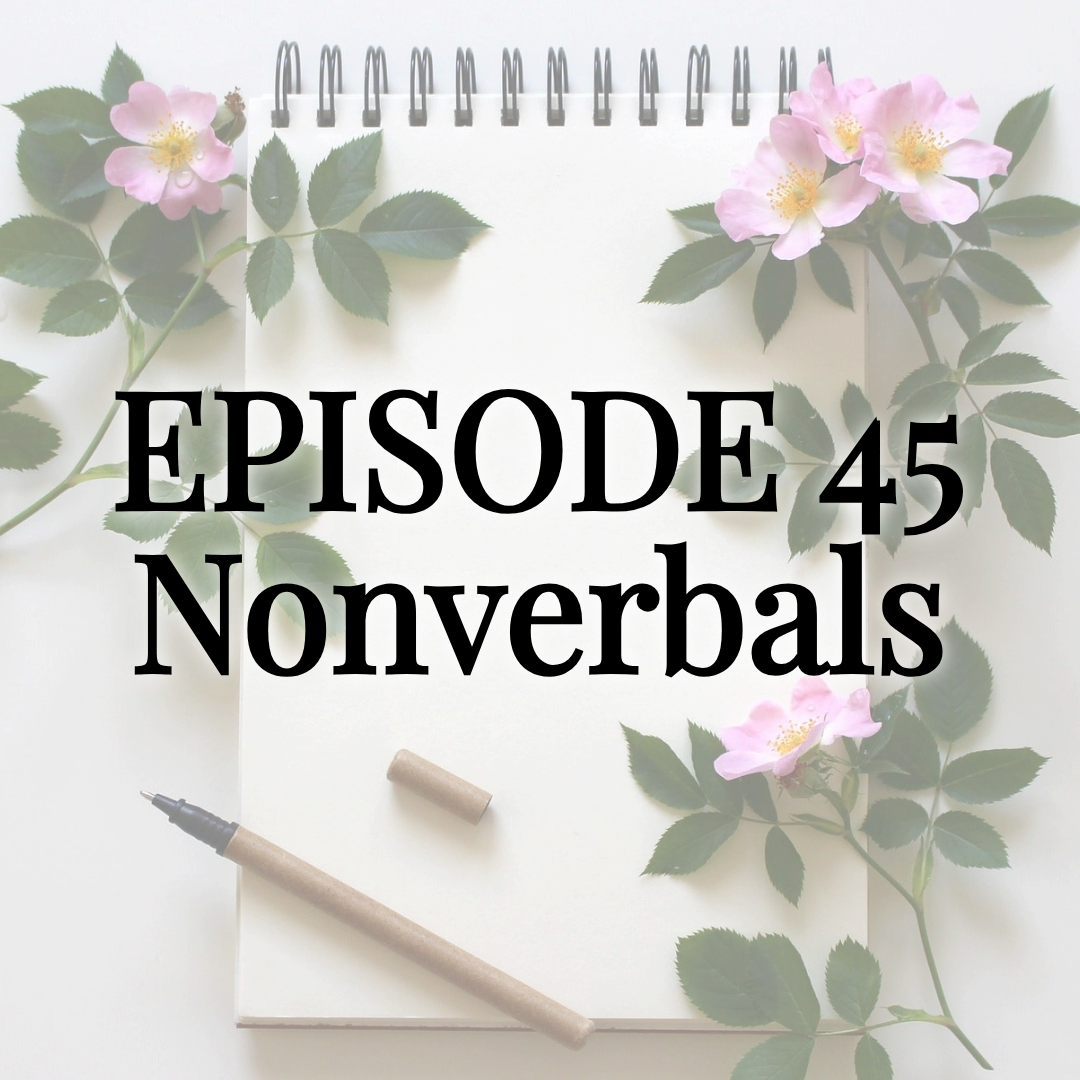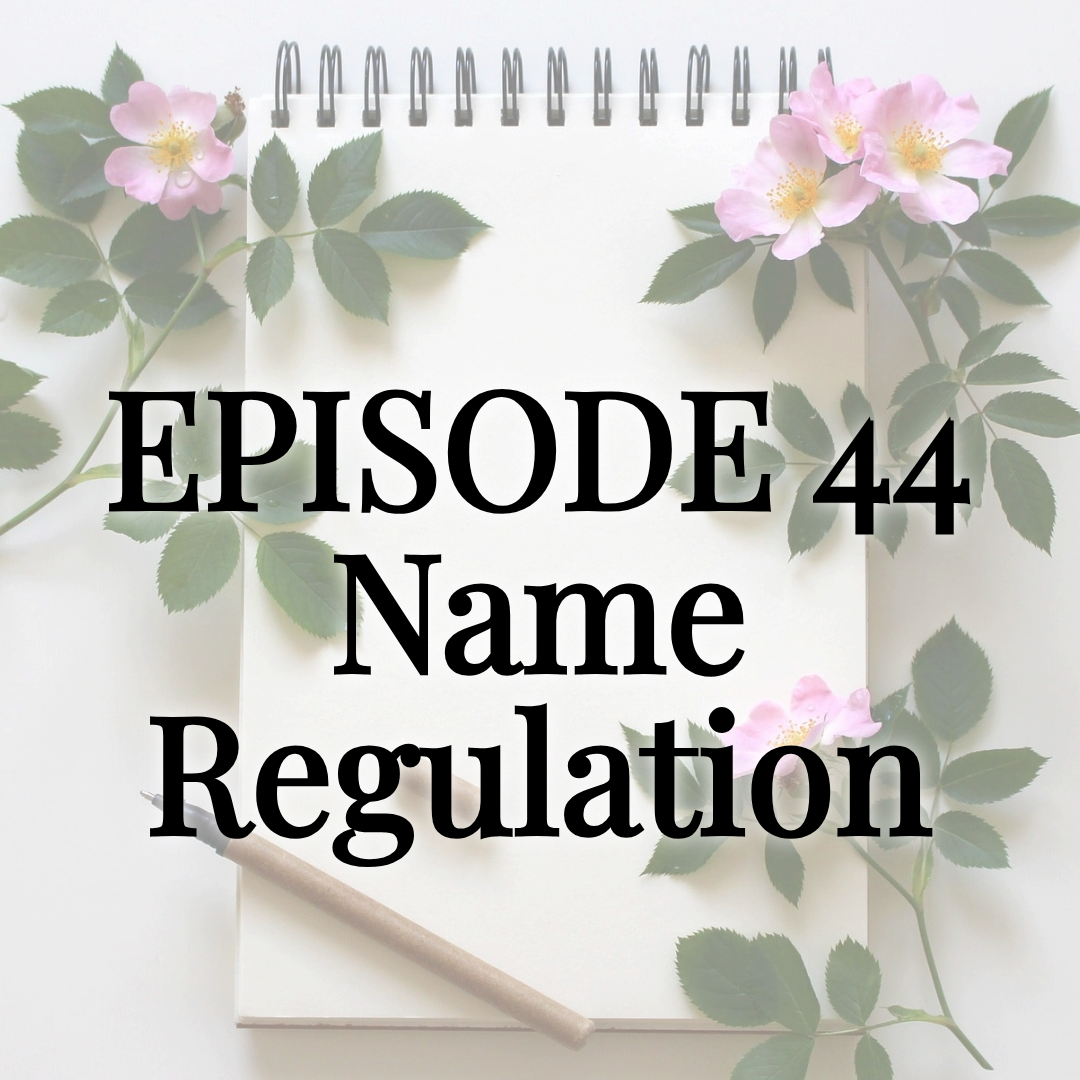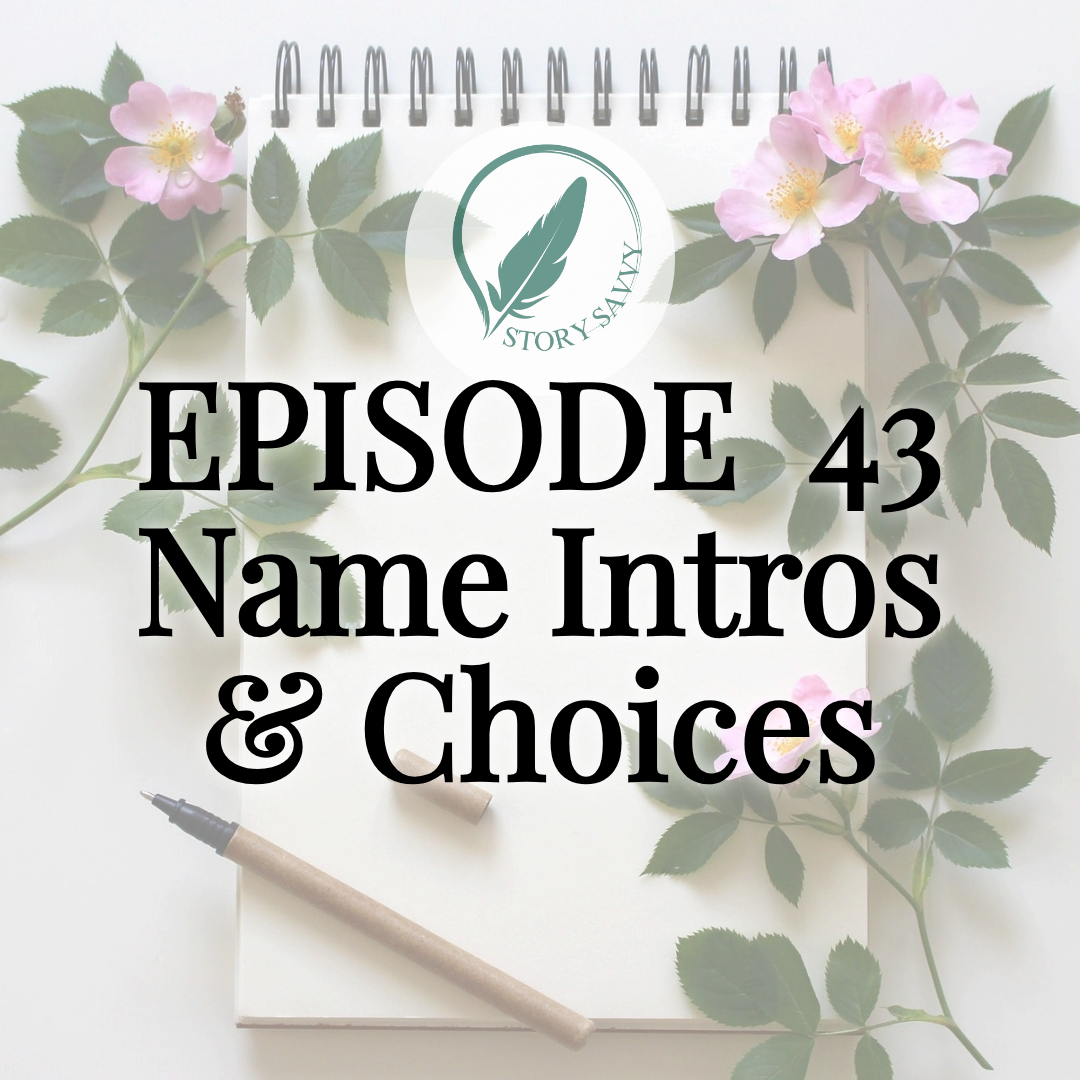Momentum Through Protagonist Goal: Story Savvy Self-Editing Episode 16
My sincere thanks to Isla Elrick for guest-hosting!
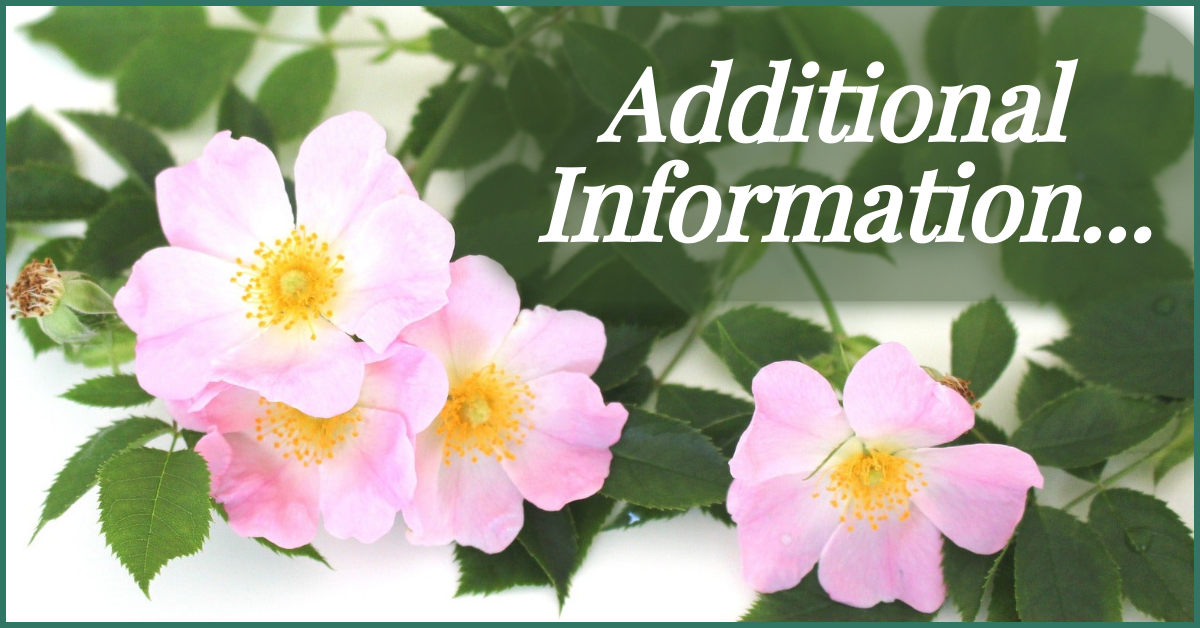
Additional thought:
On the question of "does the primary goal need to be won in the climax?" my answer was no, and I explain my answer. What I forgot to mention is that the core goal needs to be clearly lost, if it isn't won. It's a fine choice to go either way, but it can't just be forgotten, ignored, or set aside to pay off for your readers.
You can find the links to Isla's books in the show notes below, and can find her testimonial of her experience getting a developmental edit from me under the Testimonials tab in the site menu above!
I really appreciate them stepping in on short notice to cover for Agnes!
Episode 16 Overview:
Momentum Through Protagonist Goals
"Does my protagonist have a clear goal that pulls them through the story, impacting their big choices along the way? Is it presented in a way that improves my momentum and reader investment?"
Want to know how to structure a story plot in editing so it has great pacing? Rebecca shares what makes a good writer great, as she covers what are some good storytelling techniques, how to write a good plot for a story, and how to improve story writing skills!
Today, in the 13th episode of the 52-Week Story Savvy Self-Editing Series, Rebecca Hartwell answers questions from aspiring author Agnes Wolfe (authorsalcove.com), as they discuss your story’s pacing, and how to identify whether your story drags or moves too fast.
Rebecca, a developmental editor who has helped many authors turn their good stories into great ones, offers actionable steps to help you fine-tune your emotional rhythm and keep your readers turning pages, and shares actionable steps to help us know when and how to identify and fix pacing problems. Not only does she provide a way to map emotional highs and lows, but also how to interpret those highs and lows in a way that will best help writers identify when they need to adjust their pacing. Whether you’re on your first edit or tenth, this episode is packed with hands-on advice to help you strengthen your structure and deliver a satisfying reader experience.
In This Episode:
- What is “good pacing” in a story?
- How to spot scenes that drag or rush
- How to use a plus/minus method to help with mapping scenes
- When and how to break the “chapter rules”
- Solving pacing problems
Recommended Resources:
- Story Rise and Fall Shapes [https://bigthink.com/high-culture/vonnegut-shapes/]
- Authors’ Alcove Membership Site – [http://authorsalcove.com]
- Book Giveaway – [http://authorsalcove.org]
See you next week for episode 14: Using Blurbs To Test Story Strength
Episode 16 Transcript:
Momentum Through Protagonist Goals
Rebecca: Hello and welcome to the Hart Bound Editing Podcast. This is episode 16 of the weekly Story Savvy series where we tackle the 52 biggest self-editing topics and tips to help you make your good story great as a published author asks me, a developmental editor, all of the questions that you've wanted to.
My usual co-host Agnes and I have covered a bunch in this series so far, including last week's episode on checking your narrative style choices like tense, person, and POV.
Today my temporary new co-host and I are going to take a look at story momentum. Specifically around the protagonist's goals. By the end of this episode, you'll hopefully feel confident identifying whether you have a good, strong protagonist goal, if that goal —or those goals —are working, and if not, have a solid idea of how to improve them.
Joining me to ask all of the questions is my friend and editing partner Isla Elric. She's also a romantic fantasy author of several series I adore, including The Guardians of the Fey Gates. Why don't you tell us a little bit about you and your writing before we dive in with our first question?
Isla: Hi everybody, I'm Isla, I'm 28, I'm based in Central Maine, I have two dogs named Buffy and Drax and they're the cutest, they are my babies. Like you said, I'm a romantasy author. In my books I love weaving folklore and literature with gothic influences and I'm excited to be here today to tackle this really vital aspect of good story pacing and interest and pacing is one of my weak points so I'm very happy, I think it's very funny that I'm here for this one. I'm very excited.
Rebecca: Glad it will be helpful!
First question, by what point in the story does my protagonist need to have an overarching or a global goal?
Rebecca: You can find lots of different answers to this question depending on where you go looking but I've got two in mind from my experience as an editor.
Answer one is: as soon as possible, ideally the first page. I love it when I start reading a book and the first paragraph is like, "oh this is a goal, awesome I can run with that."
Answer two is: you want to have that goal in place and clear to the reader to some extent. As soon as there aren't other aspects like really solid action serving as noticeable momentum moving the story forward.
So, if your story opens with really exciting or bizarre things happening that are going to catch that interest, you don't really need to introduce that protagonist goal until those interesting aspects start diluting or fading off once the book really gets going.
I just want to say here as well that having a good strong goal on top of exciting or bizarre action is almost never a bad choice, so you can do both, but you can also usually get away with one or the other.
Isla: All right. Question two: by what point in the writing or editing process do I as the author need to know what my protagonist's core goal and smaller goals are?
Rebecca: In my opinion, not until the self-editing stage. I think that it is often easier to see what your protagonist's driving goal is or was in retrospect—looking back at what you actually ended up writing—and put in the work to clarify and strengthen it in edits than it is to try to write it in while you're drafting. So, this is the right point to figure that out—figure out what your protagonist's core goals are if you haven't already.
And to do so, if you don't know where to start, I suggest the following:
What does your protagonist want which consciously affects the choices that they make? This can be anything from attention, to freedom, to wealth, fulfillment, or more tangible things like a specific object or a specific role at work—position at work.
If you are struggling to answer these questions looking at your manuscript, you can try taking this more into a hypothetical sort of brainstorming space: If your protagonist were to make one wish to a genie, what would that be? What would that wish be? Or if they were to have a dream where they had achieved all of their goals, what would that dream be about? Just write down a bunch of answers until you feel like one clicks for the story or for the scene—whatever level you're looking at.
Then the goal in your self-editing is to thread that protagonist's goal through the whole story, or as much of it as you can. What that will do, hopefully, is give the story momentum to further avoid plodding or directionless observation as I've talked about in previous episodes. It will give the reader more to relate to or connect with in the protagonist, and very importantly, it will introduce the promise of something meaningful, impactful, and an invested win-loss moment later on in the story where the protagonist either achieves that goal or fails to. That, as much as anything else, is what gets readers to keep reading and finish the book.
Isla: Actually, you're talking about the genie reminded me of—in musical theater, there's this idea of an I Want song. When your protagonist is introduced, they almost always just cut... Obviously, musical theater is much more literal than a book, but they always come out and say exactly what their goal is. Reminded me of... So, ask yourself, if this book was a musical, what would your character's I Want song be?
Rebecca: I love that. Absolutely.
Isla: So, does the goal have to stay the same throughout the book? At what point or in what circumstance would it be okay to shift a goal? If it's okay at all?
Rebecca: I'm so glad you asked that. So, it's fine to use a chain of smaller goals if you need or want to, but I do suggest that they all stay in the same theme, or like a progressive list of goals, one chaining into the next towards whatever the climax goal is.
So, for example, perhaps the first goal for your protagonist—I'm going to go for a high fantasy setting here—is to win an archery contest. But then the contest gets cancelled because war is declared. So, the goal then becomes to get accepted into an elite regiment of archers in the army. Once that's achieved, then the goal is to show off and get promoted, then to survive the battle, and then to win the war, and then eventually to personally shoot the evil king on the other side.
That kind of progression where you can see, “all right, well, it reached this point, so now it's going on to this goal”—just chaining all the way up—but you can still see there's a connection between “I want to win an archery contest,” and “I want to shoot the evil king in the face.”
So, the second part of your question has a couple of very specific answers about when it's appropriate to do this. It is the right moment for the protagonist to change or shift or adjust one of their goals in one of four circumstances that I was able to brainstorm ahead of recording this.
So, the first opportunity for that change is when achieving that goal—or the option to have that goal—is taken off the table, like that archery contest getting canceled. That's outside of your protagonist's agency. They don't get to control that. So, it's taken off the table, which means that goal is no longer achievable. They need a new one.
Second opportunity: the goal is achieved, but it didn't satisfy them enough or as much as they wanted, or in doing so—in achieving it—a higher goal was introduced. So, let's say joining this elite guard of archers—these other people in this group still talk down on him because he has a low rank. So, he's achieved that one goal, but now it introduces another one, of: "Oh, well, I need a promotion so that I actually get the respect that I thought I was going to get."
Third: the protagonist has some sort of moment of revelation, disillusionment, or introspection, which shifts their mindset towards a higher, or more important, or more meaningful goal.
For example, we're talking about the same protagonist, realizing that just wanting to survive that battle or that war is still going to leave a lot of other people hurt or killed. Or worse if the other side wins and enslaves the protagonist's people. So, winning the whole war becomes the better goal than surviving the war.
Fourth and finally for when it's appropriate to shift from one goal to another: that moment can be where the protagonist needs to make the goal that they are chasing either more generalized and more vague in order to continue pursuing it, or make it a lot more specific and narrow in order to continue pursuing it. So, for the same protagonist, maybe that is narrowing down from “I want to win the war,” which is hard for one person to do, to “I want to shoot the evil king in his face because I don't think the war can continue without his leadership.”
Those are the four options that I've seen and personally used for when it's a good moment to shift from one goal for the protagonist to another.
Isla: Yeah, and I think shooting the evil king in the face is probably a more relatable goal—especially lately, maybe, perhaps—than winning the entire war. So, that makes sense.
Rebecca: Yep.
Isla: So, what can we do in scenes or chapters where the big overarching goal isn't really present or usable because the story got sidetracked? Like, the scene is a subplot, or you're doing a soft moment, like a break from the action or character development. Or is it just not, I mean...
Rebecca: I get what you're asking. I totally get what you're asking.
Isla: It's not doable to always be tying things to the global goal.
Rebecca: Yes, and this depends a lot on genre as well, because high-action stories are easier to keep that core goal just centered at all times, whereas softer genres like contemporary romance, definitely you need to back off that a little bit.
So, my suggestion here is: give your protagonist a very tangible one-scene goal which will meet an immediate need. If you can connect that—even obliquely—to that overarching goal, that's great, but sometimes other goals do need to come up, especially in those softer moments.
So, for example, let's say our hypothetical protagonist's overarching goal at this point in the story is to win the war. Well, in one of those specific scenes or chapters, that might look like a smaller one-scene goal of: he needs to get an audience with the general so he can tell him his idea. Or maybe he gets lost out on a scouting mission into enemy territory and the one-scene goal for that scene, that chapter, is survive. Just live through the storm and not die of starvation or thirst or whatever those stakes are in that moment.
And even if you can't tie it in—because both of those examples do kind of tie back up to I want to win the war—making your protagonist hungry with a goal of food, or thirsty with a goal of water, or alone with a goal of meeting up with a friend—any kind of connection, is going to really, really help with your momentum on that page for that duration.
Again, it's about introducing stakes of any kind and a win-loss scenario, either in that moment or down the road, complicating the events happening and making them much more interesting and keeping the story on a clear path toward something.
And again, it can be a glass of water. It can be making it to school on time.
As long as there is some goal, however small, it's going to keep your readers a lot more invested.
I remember when you were developmental editing Daughter of the Moon—in the first chapter, you were like, “Can something happen? Just anything? Like, Can she just want anything?”
I was like, “I guess.”
Rebecca: Your descriptions were great, but there wasn't a direction for it, because there was no goal sitting out there of, “Well, she needs to fully wake up,” or “She needs a glass of water.”
And having anything, however small, is really going to help, especially in the first chapter or the first half of the book.
Isla: Yeah, even if you're just getting to know characters.
Rebecca: Yes, yeah.
Isla: So, what are some common mistakes people make when writing in regard to their protagonist goals?
Rebecca: So, I've got a short list in my head for this one.
The goal is introduced too late, which I think was the case with yours—because your protagonist did have a great goal later on, but it took a while to come up or be established.
Second mistake would be the goal is never specific enough. And I usually see this with examples like I was talking about earlier, where the protagonist's goal is something like “I'm going to win the war,” or “I'm going to defeat evil.” And it's fine if that's the goal for a while, while the protagonist is still figuring out how they can achieve that. But by the climax, it really needs to be a little more specific. It still needs to narrow down to, “I want to defeat that one villain,” or “I want to get that specific position at my job”—rather than “I want to be successful.” So, narrowing it down, especially for the climax or just leading up to it, is a common mistake that I think people can easily fix if they're just aware of it.
Number three would be: the protagonist gets too distracted from whatever the core goal is that you established and ends up on this little side quest that has nothing to do with that goal path that you established. And the problem with that is that it makes the protagonist seem very inconsistent. Because if you establish that they want—let's say—the diamond, they want to go steal the diamond, that is their goal. And then they end up doing a bunch of stuff over on the side that has nothing to do with pursuing the diamond, it doesn't feel realistic to how that character has been set up to be expected to act. So, making sure that you stay on the path of whatever goal you set is definitely important.
Another common mistake—and this is probably the most common that I see—is that the goal doesn't impact their choices and their actions. So, if your goal is to, let's say, get promoted at work, you're going to make choices in how you interact with your co-workers. You're going to take certain actions about getting your work done really quickly, all with that goal of getting promoted in mind. And that applies to any story goal. If you know that the goal is, let's say, defeating the villain, then that needs to be at least like tickling the back of the protagonist's mind when they're choosing where to go, who to make friends with, how to prepare, training—all of this kind of stuff. And if you have a goal established, which is great on its own, but then that has nothing to do with how the protagonist gets there, that's a problem.
Another issue would be the goal is executed by secondary characters. So, you have a goal established—let's say, defeating the evil king, winning the war—and then a bunch of secondary characters—the best friend and the mentor and the young cousin or whatever—are the ones that actually achieve it. That's not going to serve the story as well as it could.
Very much connected to that, a common mistake that I've seen—or somewhat common—is that the goal comes from secondary characters. And this is often a mentor character who says, “Hey, you need to go defeat the evil king.” That's not going to serve the story or your readers as well as if that goal comes from inside the protagonist in any kind of way. So, when it feels more like the protagonist is a tool in someone else's hand who actually has the goal, that's going to make the story feel like perhaps this person who actually holds the goal and gave it to the protagonist should be the protagonist.
I got a couple more here, so I'll bash through them as quickly as I can:
If the goal costs nothing to achieve, then it's a weak goal and you should look for something that perhaps requires sacrifice—be that staying up late or the time it takes to walk from one room to another to get a glass of water. If there's no cost to it at all, then you probably need to strengthen that.
And then lastly—obviously it's an issue if you don't have any goals for your protagonist—but it's also an issue if you have too many. And this one's rare, but I have seen it in some of the work that I've edited.
And the problem with your protagonist having too many goals is you then have too many paths, all trying to go parallel at the same time. And the reader is going to have a harder time getting invested in one or the other because you have a bunch of different goals, and trying to keep them all pointed in the same direction on that same path is going to be challenging.
So, if your protagonist has five different goals that they are chasing through all of the different scenes, then you kind of need to decide which one is most important.
That is different from having a chain of goals, where one is achieved and then the next starts, or one is taken off the table and the next starts. So, a chain is fine, but having multiple going across the whole story can be distracting and polluting the storyline.
Isla: Gotcha. So, what would you say is the distinction between the side quest thing you were talking about—where the arc they go on has nothing to do with their end goal—and the sort of mini goal or chain of goals? For instance, say you want to kill the king—that's your end goal—and then your friend gets kidnapped or whatever. And then there's sort of an arc of having to save your friend from whoever kidnapped them. Would you consider that too divergent? Or what would you say the distinction between those two ideas is?
Rebecca: That's a great question.
So, what I would say there is: if you want to err on the side of caution, make it so that the friend who gets kidnapped is in some way important to defeating the king. And that will just keep everything on the path.
If you don't want to go that direction, then what you can do is make it clear that the protagonist is choosing between defeating the king or saving their friend in that moment. And because they choose to go off of their goal path—because they choose to save the friend—have them pay a price for it. Have them miss an opportunity to assassinate the king weeks earlier than otherwise because they went to save their friend.
If you can make it connected either through the goal or through a cost for abandoning that goal, that's going to keep it all on the same path. And when your protagonist gets back from saving their friend who got kidnapped and sees that there was a cost, that brings everything right back into that goal and the readers will still be locked in.
Isla: Yeah, it will also raise the stakes.
Rebecca: Yes, absolutely.
Isla: Yeah, because you're like, “Well, I mean, damn, now I've lost my opportunity.
So I really have to work for it now.”
Rebecca: And perhaps, you know, seeing how the friend was treated by its kidnappers is going to up the stakes in that person and make them realize, “No, I really need to go kill the king after seeing what happened.” So, there's lots of ways that you can tie just about anything you want to back into that path, But knowing what the path is and what the goal is is how you're able to do so.
Isla: Right. Yeah, I'm a big fan of third act, like, random arcs.
So that's very—that's actually very helpful for me. Thank you.
All right. So how does the inciting incident that kicks off the whole book need to connect to the main goal, if it needs to connect to it at all? And if it does need to be connected, do we need to figure out the global climax, inciting incident, or the goal first?
Rebecca: So, the inciting incident for the book should be connected in some way to the eventual climax down the road, regardless of the protagonist goal. And we've talked about this in some earlier episodes—Agnes and I—talking about how those sort of need to connect thematically.
So, from that standpoint, yes: whatever goal gets the protagonist to the action of the climax should in some small way at least appear in the inciting incident.
However, this can be in the form of that sort of chain of goals that I was talking about, where the goal that they have in the climax—shoot the king in the face—is not the same as, you know, the inciting incident of entering an archery contest, but you can see a connection between them.
You can also use a primary and a subplot to do this—but with just, you know, two or three tops.
Very few romances, for example, have an opening inciting incident goal of I want to fall in love.
In fact, it's a pretty common trope that I personally enjoy of: the story opening with both protagonists going, “Oh, I'm never going to fall in love. That's terrible. I never want to do that.”
So, what you need to have there is: you have a primary plot of the romance, and then you have a subplot of “I want a promotion,” or “I want to get new credentials for my work,” or “I want to move back to my hometown.”
And what you do is you use the subplot goals of “I want to do XYZ, I want to achieve XYZ,” as your opening momentum goals, and then eventually through that romance arc, they have morphed into a situation where you have that primary goal of “I want this person, and their happily ever after with me,” versus the goals that they had at the beginning. And often there's a trade-off there. Often you have to either give up the promotion to move in with your happily ever after, or something like that. So, using a primary and a subplot that are moving in the same direction together, but have a different set of stakes, I suppose, can help you introduce goals before your genre goals start coming in, like in romance.
That being said—and the answer to the last part of your question there—if you do want all three of those aspects—so the climax, inciting incident, and goal—to be connected, then I personally recommend figuring them out in that order. I suggest figuring out the climax first, because that's where everything needs to come together in the most satisfying way possible. And figuring out or self-editing the inciting incident after that can be very helpful in reverse-engineering that from where you know you want it to go, and then you can figure out where it needs to start. And then layering in the protagonist goals comes last, as that's a much more subtle and sort of between-the-lines element for the action that you've already, hopefully, gotten working pretty well between the climax and inciting incident.
Isla: So, you've mentioned the connection between the protagonist goal and story momentum. Is the momentum the same thing as pacing?
Rebecca: Sort of.
Pacing is largely how slow or fast a scene or chapter feels, and how you balance those ups and downs—like we talked about in episode 13. It’s a lot of the fast and slow, up and down, exciting and ponderous.
Momentum is more about keeping the story driving forward along a specific road, regardless of the speed at which it is driving in that chapter.
Both are very much important to the reader experience—particularly them wanting to keep reading through to the end of the story. But momentum is more about keeping things enticing that reader forward than it is about balancing adrenaline or breathing room.
Isla: I think that's a lesson that a lot of authors need to learn, honestly.
Because I've read so many books lately that are just action, action, action, action.
And like—it moves the story forward technically—but it's just like... I mean, all right.
Rebecca: Yeah, they both have purpose, but they’re not interchangeable.
Isla: Yeah, yeah.
So, what if my protagonist doesn’t really even know what the global goal is until the climax?
Rebecca: They still need a driving goal to get them to the climax.
Twisting what’s at stake or what’s on the table to be won or lost in the climax is a very fun choice. I especially love seeing that in fantasy or action—when they get to the climax and it’s not what they expected. But you still need the protagonist to be chasing something solid to even get them into that situation where you twist things.
So, whatever the protagonist was chasing up to that point still needs to be won or lost, in addition to whatever the global goal is that only gets recognized or explained in the climax.
Isla: All right. So, does the goal need to be achieved by the climax though? Is it okay if they never achieve their goal?
Rebecca: It doesn’t need to be achieved in the climax, and it’s fine if they don’t win whatever the goal was that they were trying to. But I do suggest using something else to balance against it if you're going to have them lose in the climax. I talked about this a little bit in an earlier episode in the series, but a bittersweet climax can be a great choice.
On this specific topic with goal and momentum, if the protagonist ends up failing in their goal and losing whatever it is that they wanted or that was at stake in that, then I suggest letting them win in some other meaningful way—perhaps fulfilling a need that they may or may not have been aware of. So, win or lose the want, win the need—or vice versa.
Unless of course you are writing a cautionary story, which is a minority, but people do write those, in which case it is pretty much necessary that the protagonist lose their goal to show that it is a cautionary story.
Isla: Yeah, I’m a fan of not giving my characters what they want at the end of the book.
Rebecca: But you balance it out. You have some positives to keep things balanced so it’s not just, “Oh, that was a bummer,” and that’s exactly the goal.
Isla: Yeah, I certainly hope so. Yes. All right, well I know we need to wrap up, but I do want to ask one last question: Do we need to have an internal goal and external goal? Is it important that they achieve both?
Rebecca: Yeah, so this is very much connected to what I was talking about with a want and a need. So, the short answer to your question is no. One or the other at any given moment is totally fine.
The longer answer is you can use both to balance that bittersweet mix. And you can use that to have that primary and subplot like I was talking about with a romance. It's kind of up to the specific author and what kind of story they want to write.
For one example, if the primary external goal is super strong like in an action fantasy, then avoiding having others in the mix like a secondary internal might really help keep the story and the reader super laser focused on that external goal and whether or not it's achieved.
As a counter example, if you are worried that the primary internal goal you are using in, let's say, a maturation plot, is boring, then adding external goals to bolster it can really help with keeping interest up and things moving forward to avoid most of the story happening inside the character's head, which is not the most interesting to read. So, it's very much up to you and the situation.
Isla: All right. Well, thank you so much. This has been great.
Rebecca: Absolutely. I really, really appreciate you stepping in to guest host on the show. And next week, our next guest host and I will go over the importance of both knowing and using the right stakes for your story.
For now, I would really like to thank everyone following along with this series. We’d really appreciate it if you can help us out by liking and subscribing to the Hart Bound Editing Podcast and the Authors' Alcove Podcast, where you can find lots more content for fantasy authors and readers beyond this joint series.
I also highly encourage you all to check out Isla’s awesome fantasy books at IslaElrick.com and follow them on social media as well under author Isla Elrick.
Again, thank you so much for hosting.
Isla: Thank you for having me on.
Rebecca: Thank you so much for listening to the Hart Bound Editing Podcast.
I look forward to bringing you more content to help you make your good story great so it can change lives and change your world. Follow along to hear more or visit my website linked in the description to learn how I can help you and your story to flourish.
See you next time!
